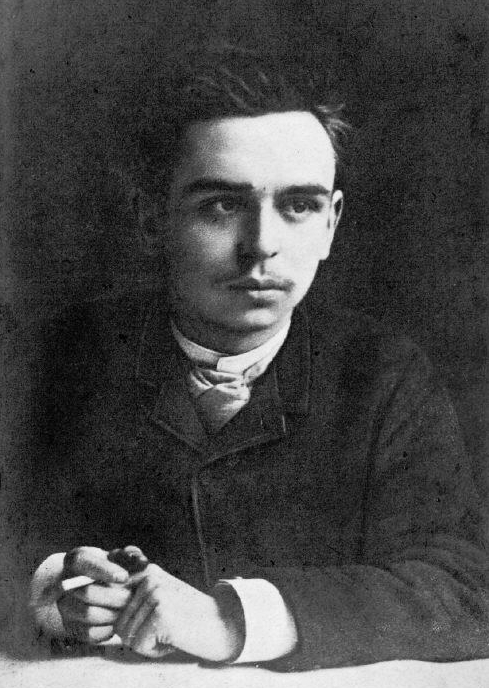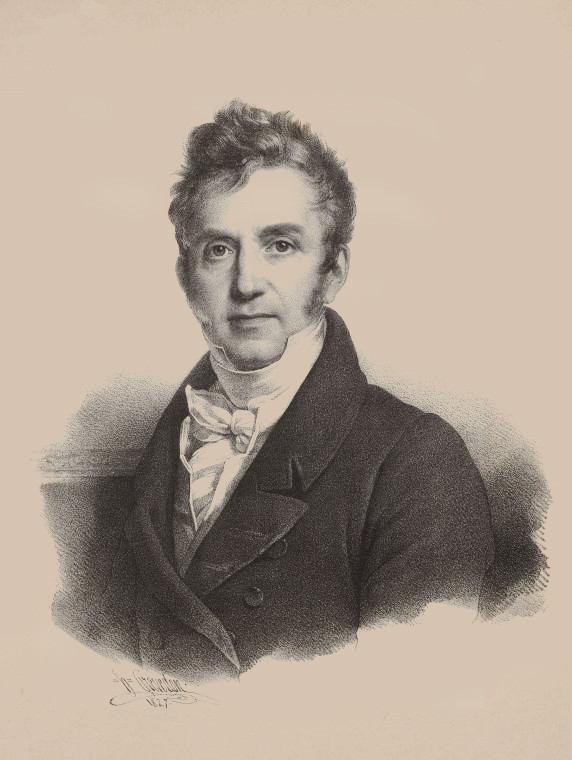|
Pierre D'Archambeau
Pierre D'Archambeau (Yverdon, 3 April 1927 – Osterville, 16 June 2014) born from Belgian parents, was an American violin virtuoso and pedagogue. Life D'Archambeau came from a long line of musicians. His father, Iwan (Ywan) D'Archambeau (Herve, Belgium, 1879 - Villefranche-sur-Mer, France, 29 December 1955), was the cellist of the Flonzaley Quartet, which enjoyed an international reputation for more than twenty-five years during the 1920s and 30s. Pierre D'Archambeau started piano lessons when he was four years old and three years later, he started violin. When he was only nine years old, he gave his first violin recital in the United States. He won many prizes, amount them the International Competition of Geneva, the Queen Elisabeth of Belgium Competition and the Medal of the Eugene Ysaÿe Foundation. D'Archambeau worked with many noted musicians, including Arturo Toscanini, Pablo Casals, Jacques Thibaud, Nadia Boulanger and Fritz Kreisler, who bequeathed him the famous ... [...More Info...] [...Related Items...] OR: [Wikipedia] [Google] [Baidu] |
Yverdon-les-Bains
Yverdon-les-Bains () (called Eburodunum and Ebredunum during the Roman era) is a municipality in the district of Jura-Nord vaudois of the canton of Vaud in Switzerland. It is the seat of the district. The population of Yverdon-les-Bains, , was . Yverdon is located in the heart of a natural setting formed by the Jura mountains, the plains of the Orbe, the hills of the Broye and Lake Neuchâtel. It is the second most important town in the Canton of Vaud. It is known for its thermal springs and is an important regional centre for commerce and tourism. It was awarded the Wakker Prize in 2009 for the way the city handled and developed the public areas and connected the old city with Lake Neuchâtel. History The heights nearby Yverdon seem to have been settled at least since the Neolithic Age about 5000 BCE, as present archeological evidence shows. The town was at that time only a small market place, at the crossroads of terrestrial and fluvial communication ways. People began to ... [...More Info...] [...Related Items...] OR: [Wikipedia] [Google] [Baidu] |
Fritz Kreisler
Friedrich "Fritz" Kreisler (February 2, 1875 – January 29, 1962) was an Austrian-born American violinist and composer. One of the most noted violin masters of his day, and regarded as one of the greatest violinists of all time, he was known for his sweet tone and expressive phrasing. Like many great violinists of his generation, he produced a characteristic sound which was immediately recognizable as his own. Although it derived in many respects from the Franco-Belgian school, his style is nonetheless reminiscent of the '' gemütlich'' (cozy) lifestyle of pre-war Vienna. Biography Kreisler was born in Vienna, the son of Anna (née Reches) and Samuel Kreisler, a doctor. Of Jewish heritage, he was however baptised at the age of 12. He studied at the Vienna Conservatory between 1882-1885 under Anton Bruckner, Jakob Dont and Joseph Hellmesberger Jr., and in Paris Conservatory between 1885-1887, where his teachers included Léo Delibes, Lambert Massart and Jules Massenet. ... [...More Info...] [...Related Items...] OR: [Wikipedia] [Google] [Baidu] |
Joseph Jongen
Joseph Marie Alphonse Nicolas Jongen (14 December 1873 – 12 July 1953) was a Belgian organist, composer, and music educator. Biography Jongen was born in Liège, where his parents had moved from Flanders. On the strength of an amazing precocity for music, he was admitted to the Liège Conservatoire at the extraordinarily young age of seven, and spent the next sixteen years there. Jongen won a First Prize for Fugue in 1895, an honors diploma in piano the next year, and another for organ in 1896. In 1897, he won the Belgian Prix de Rome, which allowed him to travel to Italy, Germany and France. He began composing at the age of 13, and immediately exhibited exceptional talent in that field too. By the time he published his Opus 1, he already had dozens of works to his credit. His monumental and massive First String Quartet was composed in 1894 and was submitted for the annual competition for fine arts held by the Royal Academy of Belgium, where it was awarded the top prize by the j ... [...More Info...] [...Related Items...] OR: [Wikipedia] [Google] [Baidu] |
Alfred Pochon
Alfred Pochon (30 July 1878 – 26 February 1959) was a Swiss musician. Biography He was born on 30 July 1878 in Yverdon-les-Bains, Switzerland. It was in his hometown Yverdon that at the age of seven, Pochon first began learning the violin before following the teachings of Louis Rey in Geneva, Switzerland, at the age of eleven. Pochon's father was a businessman and his mother had a predisposition for the piano and painting. At fourteen he decided to go for a musical career. He then left for Belgium in 1895 and enrolled at the Conservatoire de Liège, with the famous violinist César Thomson, who taught him the art of violin and especially that of the string quartet. Pochon obtained his diploma as well as a first prize in playing the in 1897. He gave one of his first concerts as a soloist at the Casino de Saint-Pierre in Geneva in 1889. He played successfully ''Septième Concerto'' de Louis Spohr. Alfred Pochon in 1890 was already in the ranks of violinists in the orc ... [...More Info...] [...Related Items...] OR: [Wikipedia] [Google] [Baidu] |
Albert Huybrechts
Albert Huybrechts (12 February 1899 in Dinant – 21 February 1938 in Brussels) was a Belgian composer. Life Albert Huybrechts was born into a musical family. His father, Joseph-Jacques Huybrechts, was the double-bassist with the Royal Theatre of La Monnaie, and his great grand-uncle was the renowned cellist Adrien-François Servais Albert entered the Royal Conservatory of Brussels at age 11, studying under Joseph Jongen, P. Marchand and Léon Du Bois In 1915, age 16, he won an award for oboe at the Conservatory. In 1920 his father died, leaving the 21-year-old Albert a "small inheritance." He won a prize for fugue with Joseph Jongen in 1922, and in 1926 his First String Quartet (1924) took first prize at the Frost-Coolidge Music Festival in Ojai, California. A few days later his Sonata for violin and piano (1925) won the prestigious Elizabeth Sprague Coolidge award. Unfortunately, with his inheritance invested in the stock market, the Wall Street crash of 1929 wiped him out, ... [...More Info...] [...Related Items...] OR: [Wikipedia] [Google] [Baidu] |
Edward Elgar
Sir Edward William Elgar, 1st Baronet, (; 2 June 1857 – 23 February 1934) was an English composer, many of whose works have entered the British and international classical concert repertoire. Among his best-known compositions are orchestral works including the ''Enigma Variations'', the ''Pomp and Circumstance Marches'', concertos for Violin Concerto (Elgar), violin and Cello Concerto (Elgar), cello, and two symphony, symphonies. He also composed choral works, including ''The Dream of Gerontius'', chamber music and songs. He was appointed Master of the King's Musick in 1924. Although Elgar is often regarded as a typically English composer, most of his musical influences were not from England but from continental Europe. He felt himself to be an outsider, not only musically, but socially. In musical circles dominated by academics, he was a self-taught composer; in Protestant Britain, his Roman Catholicism was regarded with suspicion in some quarters; and in the class-consci ... [...More Info...] [...Related Items...] OR: [Wikipedia] [Google] [Baidu] |
Guillaume Lekeu
Jean Joseph Nicolas Guillaume Lekeu (20 January 1870 – 21 January 1894) was a Belgian composer. Life Lekeu was born in Heusy, a village near Verviers, Belgium. He originally studied piano and music theory under Alphonse Voss, the director of the brass band at the local conservatory. In 1879, his parents moved to Poitiers, France. He continued to pursue his music studies independently while at school, composing his first piece at the age of 15. From 1885 onwards, he regularly composed new music, especially chamber music, and studied harmony and violin from 1887 under Octave Grisard. In June 1888, his family moved to Paris where he began to study philosophy. He was introduced to the works of Téodor de Wyzewa and continued his studies under Gaston Vallin. In August 1889, he traveled to Bayreuth to see the operas of Richard Wagner. On his return, he studied counterpoint and fugue privately with César Franck. Franck encouraged him to continue composing; after Franck's death in th ... [...More Info...] [...Related Items...] OR: [Wikipedia] [Google] [Baidu] |
Emanuel Moor (Εμμανουήλ), the modern Greek form of the name
{{disambiguation, geo, school ...
Emanuel may refer to: * Emanuel (name), a given name and surname (see there for a list of people with this name) * Emanuel School, Australia, Sydney, Australia * Emanuel School, Battersea, London, England * Emanuel (band), a five-piece rock band from Louisville, Kentucky, United States * Emanuel County, Georgia * ''Emanuel'' (film), a 2019 documentary film about the Charleston church shooting See also * Emmanuel (other) * Immanuel (other) * Emanu-El (other), a list of Jewish synagogues by this name * Immanuel (name), a given name in Hebrew, origin of the other forms in different languages * Emmanouil Emmanouil ( el, Εμμανουήλ) is the Greek version of the name Emanuel. It may refer to: People * Emmanouil Antoniadis (1791–1863), revolutionary in the Greek War of Independence *Emmanouil Argyropoulos (1889–1913), Greek aviator *Emmano ... [...More Info...] [...Related Items...] OR: [Wikipedia] [Google] [Baidu] |
Pierre Rode
Jacques Pierre Joseph Rode (16 February 1774 – 25 November 1830) was a French violinist and composer. Life and career Born in Bordeaux, Aquitaine, France, Pierre Rode traveled in 1787 to Paris and soon became a favourite pupil of the great Giovanni Battista Viotti, who found the boy so talented that he charged him no fee for the lessons. Rode inherited his teacher's style, to which he added more mildness and a more refined tone. It is also recorded that he made extensive use of portamento. He collaborated with Baillot and Kreutzer on the official Violin Method of the Conservatoire de Paris, published in 1802. Rode served as violin soloist to Napoleon and toured extensively in the Netherlands, Germany, England and Spain, staying with François-Adrien Boieldieu in Saint Petersburg from 1804 until 1809, and later spending much time in Moscow. When he returned to Paris, he found that the public no longer responded with much enthusiasm to his playing. Spohr, who heard him both bef ... [...More Info...] [...Related Items...] OR: [Wikipedia] [Google] [Baidu] |
Francesco Geminiani
230px Francesco Saverio Geminiani (baptised 5 December 1687 – 17 September 1762) was an Italian violinist, composer, and music theorist. BBC Radio 3 once described him as "now largely forgotten, but in his time considered almost a musical god, deemed to be the equal of Handel and Corelli." Life Born at Lucca, he received lessons in music from Alessandro Scarlatti, and studied the violin under Carlo Ambrogio Lonati in Milan and afterwards under Arcangelo Corelli. From 1707 he took the place of his father in the Cappella Palatina of Lucca. From 1711, he led the opera orchestra at Naples, as Leader of the Opera Orchestra and concertmaster, which gave him many opportunities for contact with Alessandro Scarlatti. After a brief return to Lucca, in 1714, he set off for London in the company of Francesco Barsanti, where he arrived with the reputation of a virtuoso violinist, and soon attracted attention and patrons, including William Capel, 3rd Earl of Essex, who remained a consiste ... [...More Info...] [...Related Items...] OR: [Wikipedia] [Google] [Baidu] |




